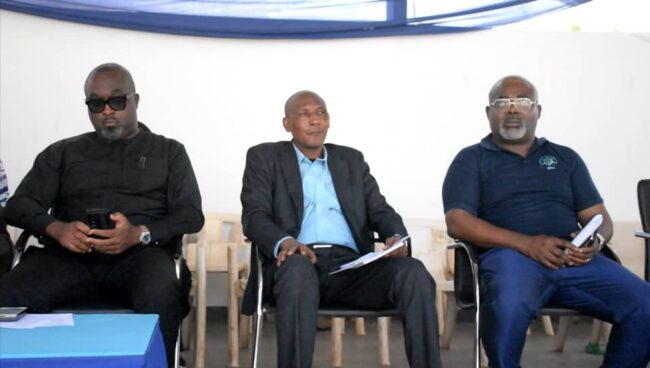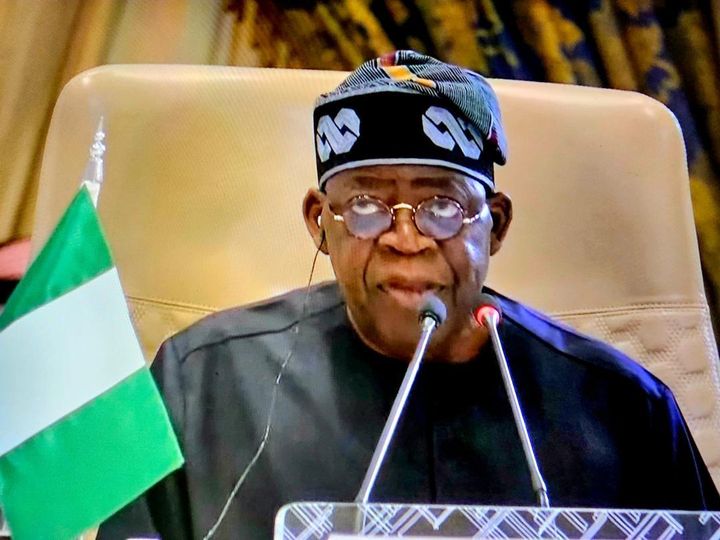Maritime
Nigerian seaports remain most expensive — Terminal operators

LAGOS – Seaport Terminal Operators Association of Nigeria (STOAN) has attributed the high cost of doing business in Nigerian ports to the multiple taxation and high duty on cargoes.
Speaking with newsmen in Lagos, the Chairman of STOAN, Princess Vicky Hastrrup, said that besides the high cost of running terminals, importers and other port users pay much more than what is obtainable in other ports due to lack of certain infrastructures like light and good roads.
Hastrrup also noted that apart from the issue of double taxation, various government agencies collect all kinds of levies from both importers that are not collected in other countries.
She explained that inflation has also taken its toll on the cost of cargo clearance, adding that apart from storage and cargo handling charges that terminal operators collect from importers and agents, other agencies collect levies and duties.
She said “ For instance, while the duty on rice in Nigeria is put at 110 percent, it is seven percent in Benin Republic and Zero percent in Cameroon, noting this high import has not only encouraged smuggling, the government of Nigeria is also losing billions of Naira in revenue to other countries.
She said that terminal operators have added value to the Nigerian port system as the ports are more efficient than they were eight years ago. Hastrrup, who is also the Executive Vice chairman of ENL Consortium, operators of berths three and Four at the Apapa port Complex absolved terminal operators of the blame of high cargo cost at the ports, adding that what terminal operators collect are statutory charges.
She further explained that the efficiency exhibited by the operators in their various terminals has also resulted in increased cargo volume and ship traffic in the country.
She also noted that the congested port access roads in and around the port area has not helped matters as the congested roads cause delay for importers to take delivery of their goods just as empty containers find it difficult to come back to the port.
“Access to the ports is our greatest challenge; we have right now because it is becoming an enormous task for those that are coming to load or take delivery of their cargoes and I think that is very frustrating.
Sometimes, we cannot even discharge as much as we can possibly do because the trucks cannot even have access to the terminals. She also disclosed that most terminal operators run on generating set for 90 percent, which adds to their cost of operation.
“It is actually much more expensive to run terminals in Nigeria than in other countries. Let me say it loud and clear here that the concessionaires are not increasing cost, you have double taxation and all sort of levies, even the industrialist can attest to this.
– VANGUARD
Maritime
Shettima Urges Stronger Synergy Among MDAs For Nigeria’s Business Environment

The Vice President of the Federal Republic of Nigeria, Senator Kashim Shettima, has called on Ministries, Departments, and Agencies (MDAs) of government, as well as members of the Presidential Enabling Business Environment Council (PEBEC), to deepen collaboration so as to foster a more conducive environment for doing business.
He made the assertion in Abuja, at the closing session of the PEBEC Retreat for heads of MDAs and MDA Reform Champions.
According to Sen Shettima the overarching goal is to ensure Nigeria remains a preferred destination for investors.
ALSO READ: SNEPCo, Former MD Aiboni Win Energy Times’ Awards
He stated, “This retreat was convened by the Presidential Enabling Business Environment Council (PEBEC), an institution I am privileged to chair, not just to review reform progress, but to deepen something even more critical: synergy.
The business of government is too complex to be solved in silos. We cannot afford the luxury of working in isolation, while the problems we are tasked to solve are increasingly intertwined.”
Among the attendees was the Director General of the Nigerian Maritime Administration and Safety Agency (NIMASA), Dayo Mobereola, who commended PEBEC for organizing the retreat.
He noted that it provided a valuable platform for peer review and constructive engagement among Federal Government appointees, aimed at improving institutional performance and reform delivery.
Maritime
NIMASA Dangles Opportunities Before Private Investors At Enugu Int’l Trade Fair

The Nigerian Maritime Administration and Safety Agency (NIMASA) has urged the private sector to seize emerging opportunities in Nigeria’s Blue Economy, particularly in the maritime sector.
The Director General of NIMASA, Dr. Dayo Mobereola made the call at the ongoing 36th Enugu International Trade Fair.
The NIMASA DG who was represented by the Deputy Director in the Planning Research and Data Management Service Department of NIMASA, Umar Mohammed highlighted NIMASA’s commitment to implementing the Renewed Hope Agenda of the Federal Government, while also emphasizing the need for inclusive economic growth through indigenous participation in domestic and international shipping.
ALSO READ: Shell Commends Oloibiri Lecture Series As Platform For Change
“To unlock the full potential of our maritime economy, NIMASA is pursuing an integrated development strategy that will support indigenous operators in ship acquisition, establish a National Carrier Line, and create maritime training institutions for world-class seafarers,” he stated.
He noted that the Agency is also implementing a Public Sector Cargo Support Programme aimed at creating a captive freight market for local carriers and reducing the dominance of foreign shipping lines in Nigeria’s seaborne trade.
Accordingly, he said the Agency’s strategic initiatives are being driven through public-private partnerships to ensure sustainability and long-term impact.
“Therefore, we are inviting investors and entrepreneurs to collaborate with us in developing a robust and competitive maritime sector that will create jobs and boost the national economy,” he added.
The NIMASA DG through his representative used the opportunity to express appreciation to the Governor of Enugu State, Dr. Peter Ndubuisi Mbah, and the leadership of the Enugu Chamber of Commerce, Industry, Mines and Agriculture (ECCIMA) for hosting the trade fair, which he described as a vital platform for business networking and investment drive.
The NIMASA plays a key role in promoting the Blue Economy in Nigeria with its promotional responsibilities, being part of its mandate to regulate maritime activities and ensure sustainable use of ocean resources.
Maritime
Nigeria Moves For Joint Maritime Task Force For Gulf Of Guinea

Nigeria’s President, Bola Ahmed Tinubu has tabled a motion for the establishment of a combined maritime task force to enhance security in the Gulf of Guinea before the Africa Union Peace and Security Council (AUPSC).
He made the call at the 38th Ordinary Session of the Assembly of the African Union (AU) Heads of State and Government in Addis Ababa, Ethiopia, on Sunday.
To give effect to the motion, President Tinubu expressed Nigeria’s readiness to host the task force’s headquarters in Lagos.
ALSO READ: Tinubu Calls For African Credit Rating Agency
President Tinubu conveyed Nigeria’s position as the AU considered the report on the AUPSC, focusing on peace and security in Africa, and the biennial report on the implementation of the Master Roadmap of Practical Steps to Silence the Guns in Africa (2023-2024).
The statement was delivered on behalf of President Tinubu by the Minister of Foreign Affairs, Ambassador Yusuf Tuggar.
“The time has come for the African Union Peace and Security Council to prioritise the creation of a Combined Maritime Task Force for the Gulf of Guinea.
“I wish to announce that Nigeria would like to host the headquarters of the task force in Lagos,” he said.
Nigeria’s recommendation of a maritime task force comes on the same day that it signed an agreement with the AU to provide Strategic Sea Lift Services for AU peace support operations, natural disaster support, humanitarian actions, and personnel movement.
It was gathered that Nigeria’s defence minister, Badaru Abubakar, signed the agreement.
Under the agreement, the Nigerian Navy will provide a vessel for the operations on a cost-recovery basis.
Nigeria’s Attorney-General and Justice Minister, Prince Lateef Fagbemi, Minister of Foreign Affairs, Ambassador Yusuf Tuggar, Naval Chief, Vice Admiral Emmanuel Ikechukwu Ogalla, and Director-General of the Nigerian Intelligence Agency, Ambassador Muhammed Muhammed, witnessed the agreement signing.
Ambassador Bankole Adeoye, the AU Commissioner for Political Affairs, Peace and Security, signed for the AU.
President Tinubu expressed satisfaction that the AUPSC had already adopted the outcomes of a high–level meeting, including the decision to upgrade the Nigerian National Counter-Terrorism Centre to a Regional Counter–Terrorism Centre.
He also appreciated the Peace and Security Council’s decision to renew the mandate of the Multinational Joint Taskforce, addressing the twin challenges of terrorism and violent extremism in the Lake Chad Region.
On Libya, the Nigerian leader expressed concern that the instability in the North African country has continued to worsen security challenges in the Sahel and called on the Assembly to back initiatives to restore law and order.
“The Sahel cannot enjoy peace as long as Libya does not,” he warned.
President Tinubu highlighted the severe insecurity affecting countries grappling with democratic transition, including Sudan, Burkina Faso, Mali, Niger, South Sudan, and Gabon.
“It would not be out of place to explore the possibility of extending the inherent benefits of UN Security Council Resolution 2719 to support AU Peace Support Operations,” he said.
In doing so, he added that the AU must try to prevent the increasing incursion of extra-continental forces, including private military companies, into African security matters.
President Tinubu welcomed the progress in operationalising the African Standby Force, reiterating Nigeria’s support.
He appealed to all AU member countries and delegations to show the necessary flexibility and allow the draft MoU on the operationalisation of the standby force to be adopted.









